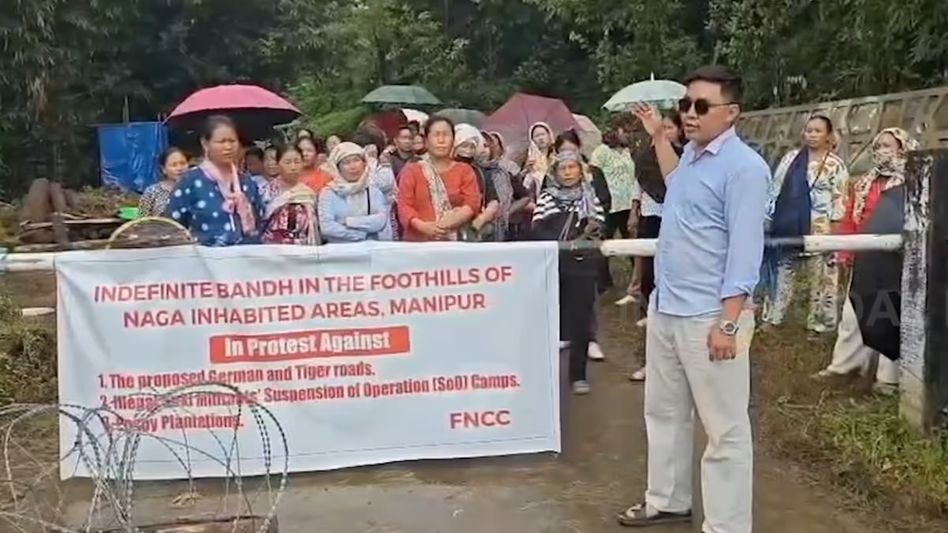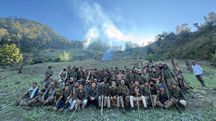Foothill Naga Coordination Committee calls off blockade after talks with Manipur govt
The Foothill Naga Coordination Committee (FNCC) has officially called off its indefinite road blockade and agitation following a breakthrough meeting with the Manipur Government held in Imphal on Friday.

The Foothill Naga Coordination Committee (FNCC) has officially called off its indefinite road blockade and agitation following a breakthrough meeting with the Manipur Government held in Imphal on Friday.
The resolution came after a detailed discussion on a range of pressing issues raised by the FNCC, which represents Naga interests across the foothill regions of the state.
The state government, represented by senior officials, clarified that no official sanction or approval had been granted for the alleged renaming or construction of interior village roads, particularly in contested foothill areas. The FNCC had earlier alleged that Kuki refugees had arbitrarily renamed a road as "German Road" or "Tiger Road," branding it an attempt to distort history and alter cultural identities.
“The government has assured us that no illegal road construction or renaming will be tolerated. Any such activity will be subject to legal scrutiny and verification, and necessary action will follow,” a representative of the FNCC said following the meeting.
On the issue of security and territorial integrity, the state addressed concerns related to the Suspension of Operations (SoO) agreement and the continued presence of designated Kuki militant camps near Naga-inhabited areas. The government committed to consulting the Union Ministry of Home Affairs and emphasised that the fears of the foothill Naga communities would be taken seriously in framing future security protocols.
Also Read: Kuki civil society groups enforce economic blockade along NH-2 in Kangpokpi
In a joint stand against narcotics and deforestation, both the government and the FNCC acknowledged the severity of illegal poppy and cannabis cultivation in the region. The government highlighted its “War on Drugs” campaign under which operations have been carried out under the NDPS and PIT (NDPS) Acts. It noted that joint drives involving the state police and central agencies like the Narcotics Control Bureau (NCB) have already led to significant crop destruction. Both sides agreed to intensify surveillance and eradication operations in affected areas.
The FNCC had launched its protest on July 18, enforcing an indefinite road blockade and general strike across the Naga foothill belt. The agitation was sparked by accusations of demographic alteration, encroachment by illegal immigrants and Kuki refugees, and concerns about the cultural and historical integrity of Naga territories. The committee had accused the government of inaction and demanded firm steps to preserve Naga ancestral lands.
Today’s breakthrough offers a temporary resolution, but FNCC leaders have warned that they will continue to monitor the government’s follow-through on its promises. “This is not the end. If necessary steps are not taken in a timely manner, we reserve the right to resume democratic agitation,” said a senior member of the committee.
While the agreement brings temporary relief to the affected regions and restores mobility in the foothill zones, tensions remain fragile amid lingering inter-community distrust and anxieties over territorial integrity, security, and identity.
Copyright©2025 Living Media India Limited. For reprint rights: Syndications Today









